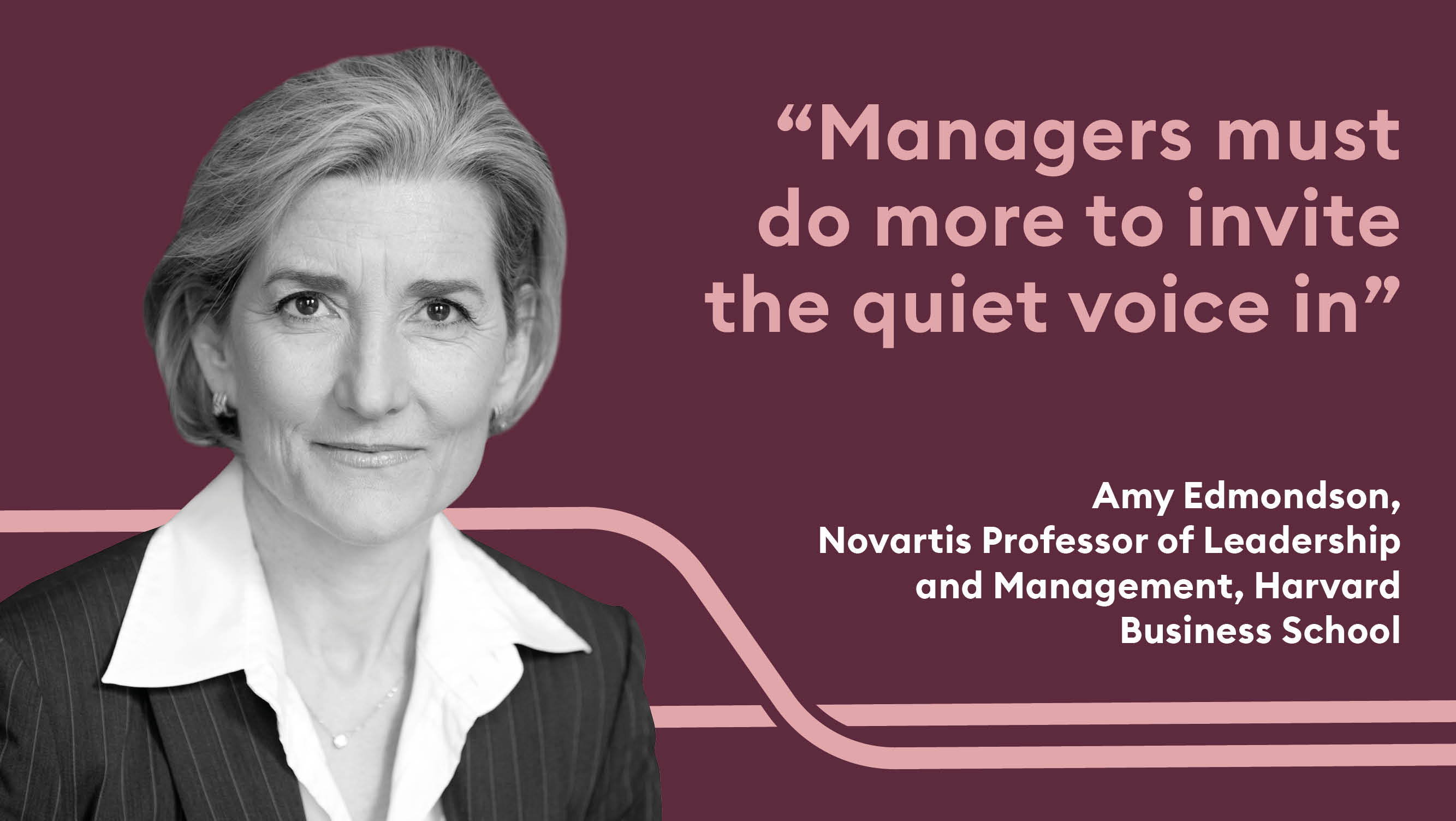The best way to describe psychological safety is as permission for candour. My early research in the 1990s looked exclusively at the cost of people holding back work-relevant observations, concerns, ideas and challenges. It’s easy to understand why people do that – they worry what people think about them and it’s safer to hold back.
Psychological safety post-COVID-19
What has happened post-COVID-19 is that the domain of psychological safety has expanded – in part because of the large number of people working remotely. The boundaries between work and personal life have become blurred and we’re seeing into our colleagues’ childcare and health issues. These things used to be separated, but they are becoming part of the conversation as we navigate this uncertainty.
The most important thing to realise is that remote working lowers the level of psychological safety on average; or, put another way, it raises the bar on voice. It makes it harder for people to spontaneously lean in with a comment at an appropriate time. You have to unmute yourself, and raise your hand – that creates a higher hurdle. This means that managers must do more to invite the quiet voice in and do more to create an environment where all are confident that their voices are necessary.
How to create psychological safety in a hybrid working environment?
I advise leaders to focus on humility, curiosity and empathy.
Humility is about an intelligent recognition of how much we don’t know and how much uncertainty lies ahead. By forcing yourself to be aware of the complexity and challenge of the work we do, you’re more likely to speak openly about it. That sets the standard for other voices and unlocks some of the fear people feel.
Curiosity is a stance that needs to be constantly reinvigorated. Force yourself to be curious. Why is that person holding back at work? With curiosity, it becomes natural to ask questions. Make sure they’re focused, invite careful thought and give them room to respond.
Empathy – when you hear the inevitable bad news or bad question, make sure you always pause to think about how you would like to be treated in that moment. Be forward-looking and caring.
More about Amy Edmondson
Amy Edmondson is the Novartis Professor of Leadership and Management at the Harvard Business School, a chair established to support the study of human interactions that lead to the creation of successful enterprises that contribute to the betterment of society.
She studies teaming, psychological safety, and organisational learning. Her articles have been published in numerous academic and management outlets, including Administrative Science Quarterly, Academy of Management Journal, Harvard Business Review and California Management Review.
Her most recent book, The Fearless Organization: Creating Psychological Safety in the Workplace for Learning, Innovation and Growth (Wiley, 2019), offers a practical guide for organisations serious about success in the modern economy and has been translated into 15 languages.
Surviving the 'Great Resignation'
The world of work is a different place post-pandemic. The psychological impact of COVID-19 has affected how employees view their employers and their work. In addition, remote working has changed how we expect to work and made it easier to switch roles.
Find out how employers can attract, engage and retain their top talent in this Future Talent Learning-produced whitepaper in partnership with Hudson RPO.
Embed learning in your leadership development
Future Talent Learning can help employees develop the human skills needed to transition from managing to leading.
We provide immersive learning experiences for busy professionals at all levels. Our courses focus on the most in-demand human-centred skills that can be applied and practised in the flow of work.
We offer a range of ready-to-go short courses and 100% virtual mini-MBA that delivers against two management apprenticeships, funded through your Apprenticeship Levy.
















